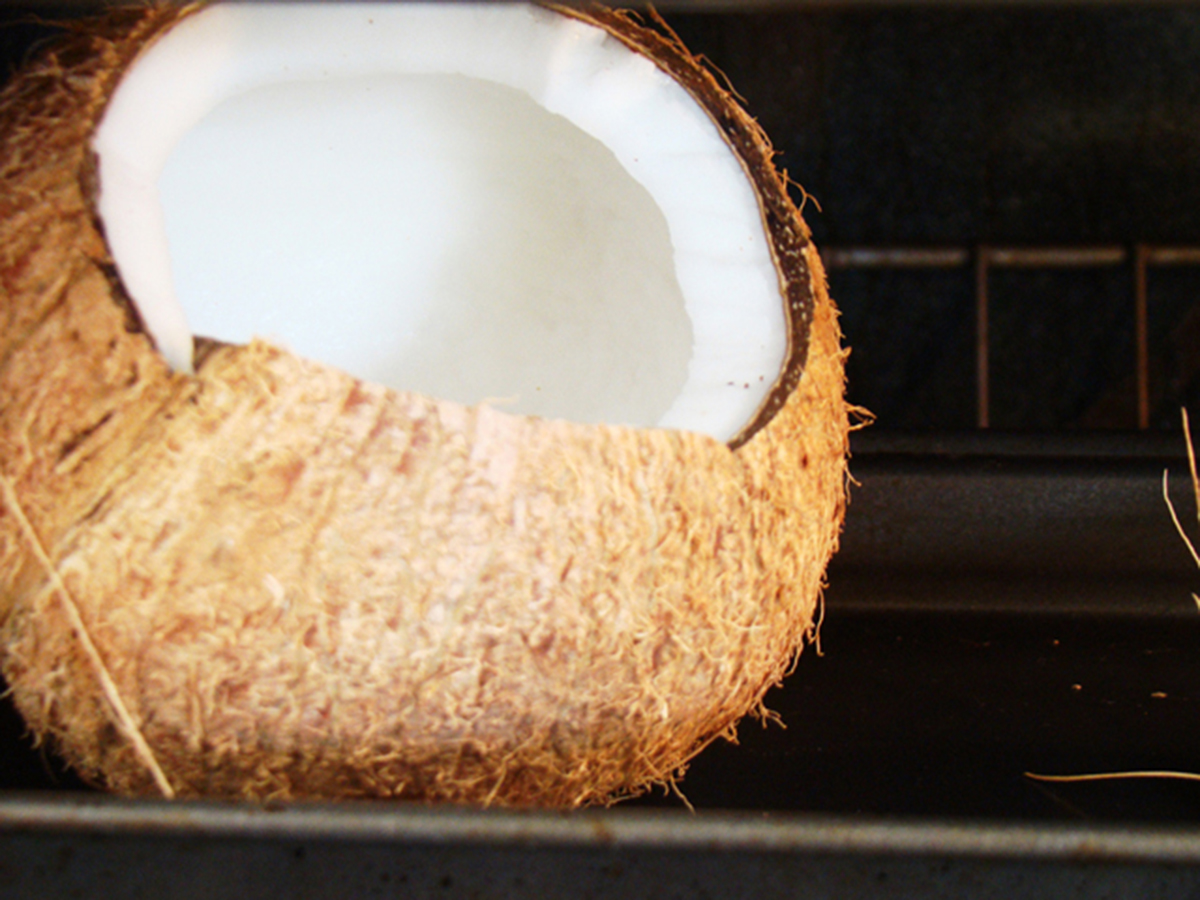Table of Contents
Most research studies focus on specific beauty treatments and related uses including the effect of coconut oil on the skin; its effect as a sunscreen; its use as a protective hair product; and its use as a mouthwash.
Cosmetic Use Of Coconut Oil
Results of a study undertaken in the Philippines and published in 2004 by the National Institutes of Health (NIH) showed that the use of coconut oil significantly improves skin hydration. Researchers weren’t surprised since people living in the tropics have used coconut oil as a moisturizer for centuries. However there had been no clinical studies to show that using it was effective or safe, which is why they initiated this study.

The study set out to compare the use of extra virgin coconut oil with mineral oil which is commonly used as a treatment for mild to moderate xerosis, a skin condition that results in dry, scaly, rough and itchy skin. Authors of the research report noted that other studies have shown coconut oil has antiseptic effects when used on the skin, but they did not test this finding.
A total of 34 people took part in the randomized trial, some of whom were treated with coconut oil and others with mineral oil. They found that the results of both were comparable, with both improving skin hydration significantly, and both increasing skin surface lipid levels. They measured transepidermal water loss (TEWL) and skin surface hydrogen ion concentration (pH) for safety, and found there were no significant differences here either.
Coconut Oil As A Sunscreen
In a Serbian study published in 2011, researchers considered the potential of certain herbs to provide the skin with protection from ultraviolet (UV) radiation of the sun. This was considered together with the risks of wrinkles, sunburn, reduced immunity against infection, cancer, and premature aging. It also included the value of antioxidants that are believed to play an important role in fighting free radicals that affect the skin adversely. Various oils were also considered.
While coconut oil was not the only oil that formed part of the Serbian study, it was found that it resists about 20 percent of UV rays. The only oil that had a higher resistance to any of the others was sesame oil that was found to block out as much as 30 percent of UV rays.
Coconut Oil For Hair
A number of studies have found that coconut oil is a very effective treatment for preventing damage to hair. So Indian researchers decided to compare the effects of coconut oil with the effects of sunflower and mineral oil on the hair. The research results published in 2003 reported that only coconut oil was effective. Further, it was the only one of the three oils that reduced protein loss in hair when used before and after washing.
Oil Pulling Using Coconut Oil
Oil pulling is a traditional method of cleaning the mouth by reducing harmful bacteria and plaque. It also reduces bad breath, minimizes inflammation of gums, whitens teeth, and helps to prevent gingivitis and tooth cavities.
A study report published in the Nigerian Medical Journal earlier this year (March-April 2015), and republished online by the NIH, looked specifically at the effect of coconut oil as it related to plaque-related gingivitis. It is believed to be the first study of its kind using coconut oil and the results were overwhelmingly in favor of coconut oil. Researchers found that plaque decreased significantly from day seven of the trial, and continued to decrease thereafter.
READ Natural remedies: Jojoba oil
Researchers recommended that more studies be done on the antimicrobial potency of coconut oil to see how it could be effectively used to counter oral diseases.
- www.coconutresearchcenter.org
- authoritynutrition.com/top-10-evidence-based-health-benefits-of-coconut-oil/
- daa.asn.au/for-the-public/smart-eating-for-you/nutrition-a-z/coconut-oil/
- www.ncbi.nlm.nih.gov/pubmed/15724344
- www.ncbi.nlm.nih.gov/pubmed/22279374
- www.ncbi.nlm.nih.gov/pubmed/12715094
- www.jisppd.com/article.asp?issn=0970-4388
- year=2011
- volume=29
- issue=2
- spage=90
- epage=94
- aulast=Asokan
- www.ncbi.nlm.nih.gov/pmc/articles/PMC4382606/
- Photograph of coconut oil © Penny Swift Photograph of coconut courtesy of Wikipedia
- Photo courtesy of
- Photo courtesy of
- Important notification about information and brand names http://www.steadyhealth.com/polices/terms-of-use#copyright

